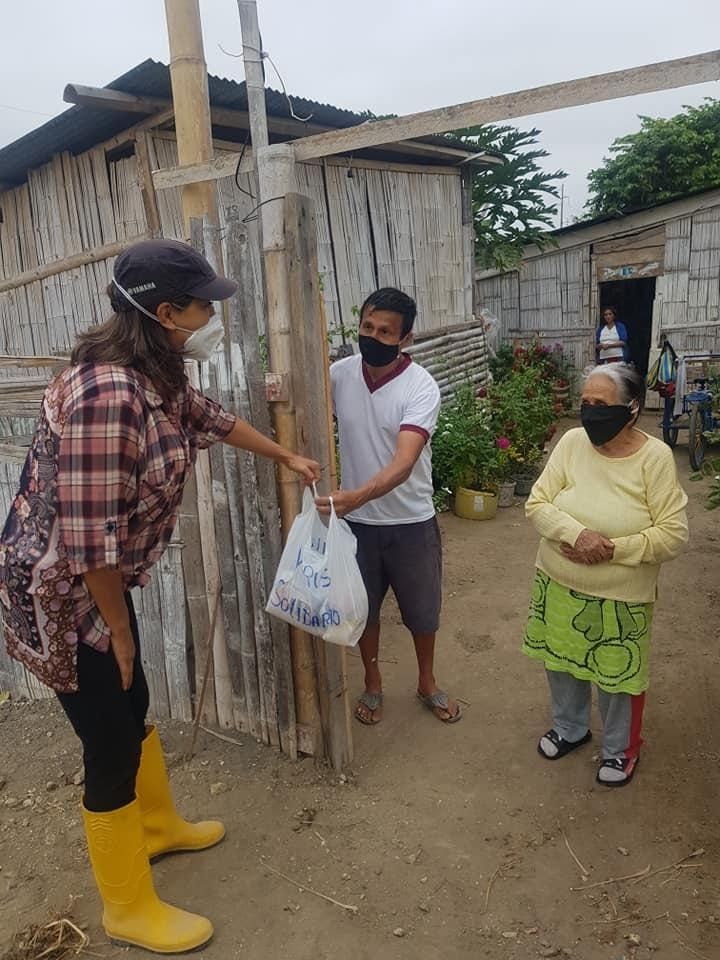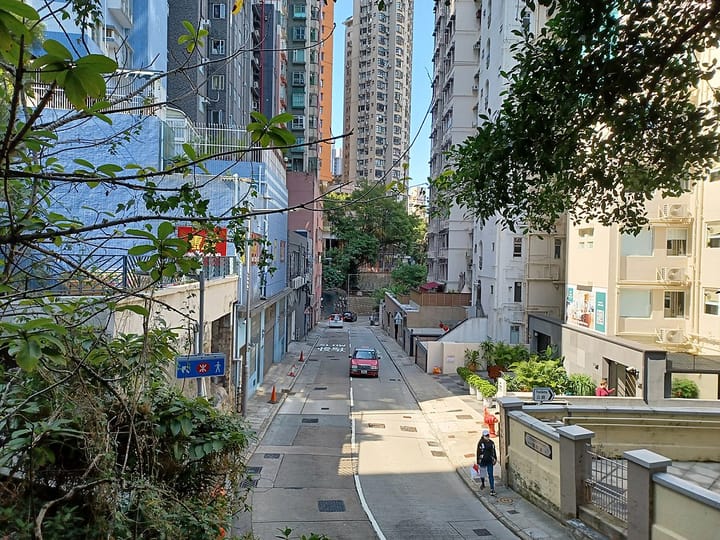Voices: The true cost of the COVID lockdown in Ecuador

A few minutes every morning is all you need.
Stay up to date on the world's Headlines and Human Stories. It's fun, it's factual, it's fluff-free.
March 17, 2020 – Ecuador shut down. Literally. No travel in or out of the country, no travel between provinces within the country. A national curfew in place from 6 p.m. to 5 a.m.
One week later, people suddenly weren’t allowed to drive their cars but for one day a week. Taxis were restricted, buses stopped running. And the curfew was extended from 2 p.m. until 5 a.m. No work. No school. No money. No food.
An immigrant’s point of view
I am a Canadian living in Ecuador. My husband and I own a small retreat center on the Salinas Peninsula, on the beach of Punta Carnero. We’ve been here almost three years and had built up a good business, bringing North Americans and Europeans here to enjoy the quiet, the beach and the unique character of coastal Ecuador.
The property was full on March 14 when we learned of the impending lockdowns. All of our guests left within two days, some of them weeks before their planned departure. Immediately we lost our rental income, which meant we could no longer pay people to come in and cook and clean and do the gardening.
For us, it was more of an inconvenience and it pushed back the timeline of work we had planned to do on the property. Most of the money we earn from rentals goes toward renovations and maintenance. But we had some savings and we have income from other sources, so we could still pay our electricity bills and buy groceries.
A man-made disaster
The economic impact of the lockdown on the country of Ecuador is huge – at least a 7% contraction in the economy but numbers don’t really tell the story.
Imagine, if you will, the impact this kind of restriction of gathering and movement has on people who earn their living selling vegetables or coconut water on the street corners to earn the US$10 or US$15 per day they need to eat. If they miss one day of work, they do not eat that day.
Imagine, if you will, the impact of the beaches being closed when tourism is the primary source of income for huge sections of the population that are already living at the subsistence level. The people who rent tents, the people who do chair massages, the people who sell meals on the beach. Nothing. Not one cent of income.
And no government help.
The impact on the lives of individuals is almost inconceivable. We “adopted” a family a couple of years ago. My husband was the padrino (godfather) for the high school graduation of one of the daughters, a young girl determined to get a university education and pull her family out of poverty. The dad is a shoemaker – he makes and repairs shoes, purses and items made of canvas, like the covers for our air conditioners. That’s how we met him. Mom is a housekeeper and sometimes works in a cevicheria (restaurant that sells ceviche and other seafood) in Salinas. They are honest, hardworking people who live in a one-room house.
Not one cent in income. For months.
Thank goodness we were able to help in the first two months, and then our Canadian family pitched in by sending money so that we could make sure the family had enough to eat and there was internet so the kids could continue their education.
Most of the working-class families here do not have computers and most do not have internet. It’s pretty hard to do distance learning when you have no way of accessing that education.
But our adopted family is lucky. They had help. Millions of others were not so fortunate. If there was any food or help coming from any government agency, nobody we knew saw any of it. Many children, elderly and disabled people were going days without food. Or potable water.
In response, many expats (immigrants from North America) began raising money and putting food kits together and took them into the barrios.
Imagine going into a barrio with 200 food kits and having to choose who gets them? One of the most poignant experiences was with a single mom with her two children. My colleague went to the house to give her a kit, but she said, “Please give it to my neighbor. She has four children and they are all hungry.”
Think about that for a moment. This woman, who had literally only a bag of rice and some plantains in her cupboard, offered her share of the bounty to a neighbor.
The need was so great, we would often come home and just cry. Then we would get on the phone and on social media and beg for more money from whoever would listen to us. We are still seeking donations because nobody in the tourist industry is working yet. Several big hotels have closed here in Salinas and in Guayaquil and Quito and countless restaurants will never open their doors again.
And the farmers – my gosh, the farmers. So many were unable to harvest their crops because the workers couldn’t get to the farms. And then if they could get their crops harvested, they couldn’t get them to market unless they were part of one of the cooperatives that had trucks. Imagine the food rotting in the fields while people are hungry. My colleague and I talked to many farmers who were worried that, because of this, they were not going to be able to plant the next crop. That means food shortages were coming and already we are seeing rising prices.
Beyond the hunger, beyond the inability to continue education, this is also a country where birthdays and quinceañeras and weddings were cause for frequent family gatherings. When you have nothing, anything is a reason to celebrate and family is all-important. But nobody was allowed to congregate. Nobody was allowed in the parks or the playgrounds. No soccer. Imagine what that does to your sense of self when the community is all you have.
And the threats continue – but not from a virus. The Galapagos Islands is a UNESCO World Heritage Site and one of the most popular wildlife tourism destinations on Earth. 97% of the archipelago is protected as the first National Park in Ecuador and every year more than 200,000 tourists from all over the world visit this amazing place. But there have been no visitors for months. The economy is devastated. And now a huge fleet of 250 Chinese fishing boats is threatening the boundaries of the protected area, pulling everything and anything out of the water, the deep-sea equivalent of clearcutting. What will that mean to the Galapagos and the future of tourism there?
Resilience is being tested
Hopelessness is raising its ugly head, even in this country where the people historically have been so resilient despite anything mother nature or corrupt governments could dish out. They help each other and they depend on each other, but this strength is being tested.
The incidence of domestic violence has risen here just as it has in other parts of the world, but here there are no shelters in most areas. And even in areas where there is help, the victims have no way to get there. At the height of the lockdown, they couldn’t get a cab or a bus, and nobody could drive, even if they had a car. Children still don’t have the respite that they would normally get at school.
Nobody knows how many people really got sick with COVID-19 or if their illness was from malaria or dengue fever. Nobody knows how many actually died of this virus. What we do know is that the lockdown has had a terrible impact on my adopted home and the ramifications will continue for decades.
This Voices story was written by Kate Kunkel. Originally from Canada, Kate is a vegan nutritionist and health coach who currently lives in Ecuador with her husband.
Have a story to share? Get in touch at contributors@themilsource.com




Comments ()